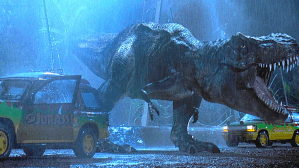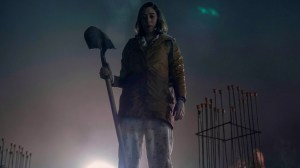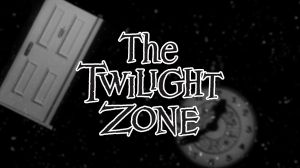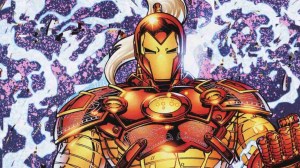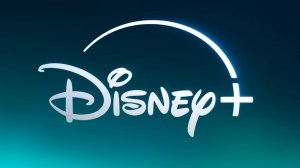When you think of sci-fi and epic blockbusters, plenty of titles come to mind, but one thing is undeniable: Jurassic Park is always in the conversation. The film (which eventually expanded into a massive franchise with Jurassic World) didn’t become a pop-culture juggernaut by accident. It dominated the box office, redefined visual effects, and proved that a blockbuster can be scary while still being accessible to a wide audience (and no full-on bloodbath required). But what most people still don’t know is that this classic almost had a much wilder version if another director had taken the reins. Before Michael Crichton’s novel became Steven Spielberg’s adaptation, there was another contender with a completely different vision — one that was honestly closer to a nightmare than a family-friendly theme park.
Videos by ComicBook.com
If you guessed James Cameron as the auteur who almost took Jurassic Park down a much darker route, you’re right. And the director even admitted that, for a few minutes, he really thought he was going to land the project. The difference? He wanted to turn Jurassic Park into an R-rated film, focused a lot more on visceral horror than the adventure we saw hit theaters in 1993 and became beloved over time.
Jurassic Park Almost Had James Cameron in the Director’s Chair
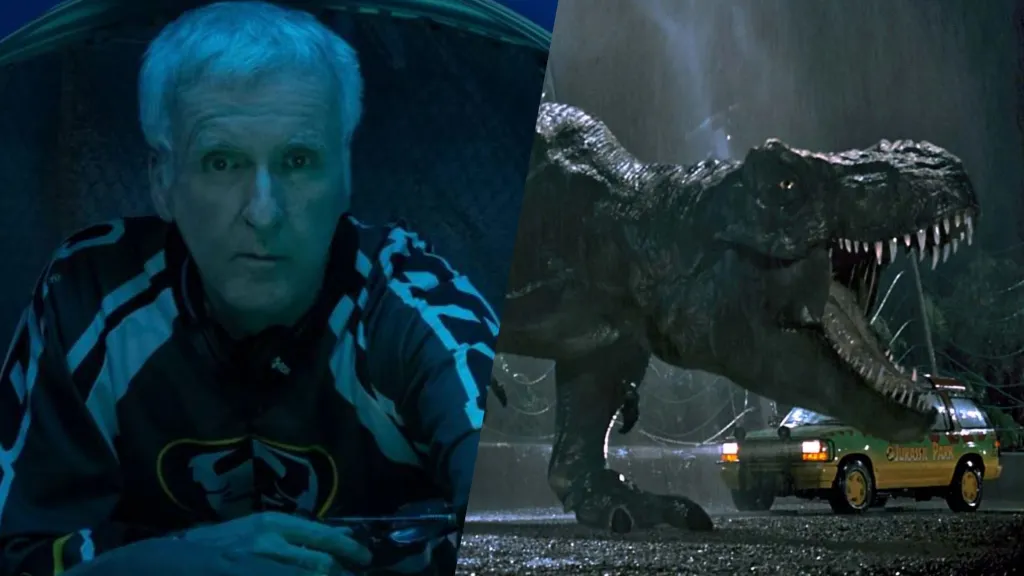
It’s not the first time Cameron has brought this story up, but it’s still wild to think how different cinema history would be, considering Jurassic Park became a landmark that shaped countless productions after it. The craziest part is that Cameron came very close to securing the rights and making it happen. In an interview with the UK’s Huffington Post back in 2012, he revealed that his version would have basically been “Aliens with dinosaurs”: less scientific awe, more brutal survival. In other words: forget the emotional Brachiosaurus scene, because Cameron would’ve gone straight for chaos, blood, and the sense that no one was ever safe. Spielberg’s version creates that feeling too, of course, but the tone is far lighter.
In a recent interview with Empire Magazine, the filmmaker went into detail about how everything played out at the time. “I got sent Jurassic Park — the [Michael] Crichton novel. It arrived on a Friday afternoon, and I was halfway through it on Saturday. I got to the scene in the book where the kids are in the Jeep and they get flipped upside-down and trapped, and the Tyrannosaurus comes up and licks the windshield because it can smell them inside,” he shared, explaining that this was the moment he knew he wanted to adapt the book. “I called up the agent and I said, ‘I’m buying the book!’ And he said, ‘Too late, Steven Spielberg just got it.’” And according to Cameron, when he watched the film later, he felt his colleague was absolutely the right person for the project. He admitted his own approach would’ve been far more terrifying and definitely R-rated.
Imagining this alternate universe is fun, but the truth is that Spielberg’s tone is exactly what turned Jurassic Park into what it is today. “He made the version that would have spoken to me as an eight-year-old, when I thought dinosaurs were the coolest thing in the world. And that’s the movie that should have been made,” he added. Cameron’s version would’ve definitely been good, but he was right in admitting it wouldn’t have become the blockbuster that won over so many people.
What Would James Cameron’s Jurassic Park Have Looked Like?
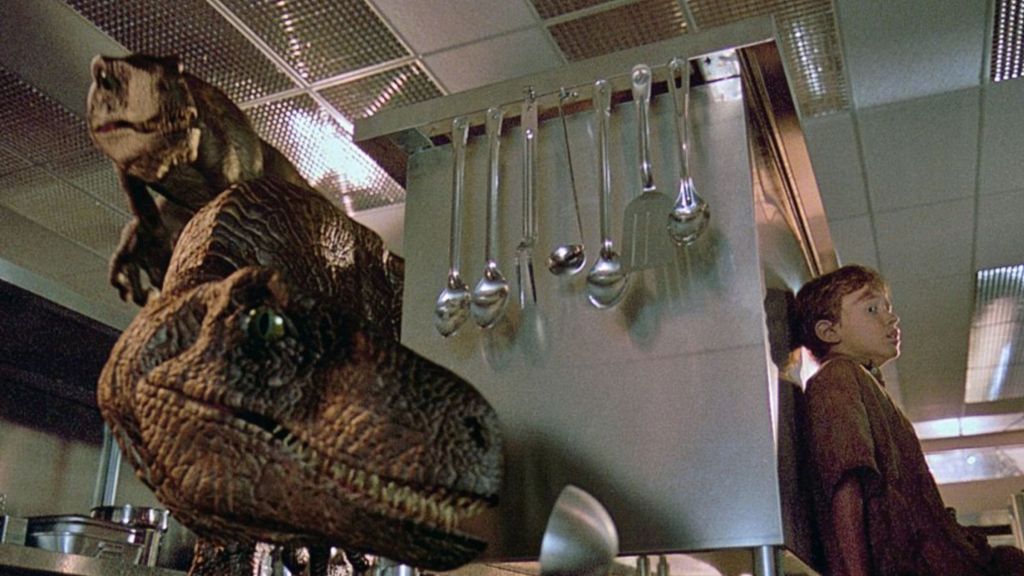
Here’s the big question: would Cameron’s version still have been interesting? Yes. Could it have come anywhere close to the Jurassic Park we know? Not even remotely. Cameron made it clear that, under his direction, John Hammond would’ve been more sinister, the park would’ve had much less “investor showcase” energy, and much more “experiment gone horribly wrong.” That kind of shift doesn’t just change the movie; it changes the entire franchise’s identity. Besides, Universal would never have marketed that movie as a family-friendly adventure. And it’s very likely we wouldn’t have toys, theme-park attractions, or any of the franchise’s huge merchandising footprint, because it’s hard to license a brand full of scenes where people are being torn apart.
Spielberg’s Jurassic Park worked because he understood the balance between wonder and suspense. Some people might think that not having much violence or gore makes it hard to take a dinosaur movie seriously, but it was actually that balance that made the movie appeal to everyone. A darker, more violent version would’ve been incredible for a specific niche, but it probably wouldn’t have reached the same cultural or financial impact as the 1993 film.
However, on the other hand, we also have to be honest: Cameron had the material to create something genuinely tense — maybe even closer to the book than Spielberg’s take. An R-rated version could’ve explored the scientific themes without worrying about scaring away audiences, and that’s something the franchise has often underused. Dinosaurs are cool, sure, but the core of the story is human arrogance and the idea that just because you can do something doesn’t mean you should. Cameron likely would’ve dug deep into that, merging science, corporate greed, and catastrophe with the same intensity that marked Aliens and The Terminator, for example.
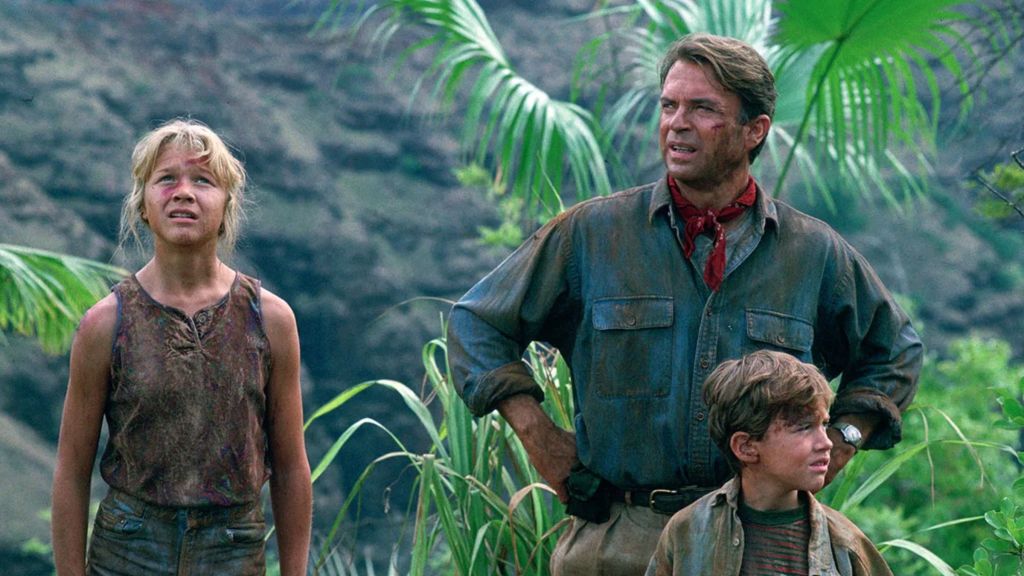
And that opens another debate: would a higher rating have benefited the franchise in the long run? A lot of the criticisms aimed at the later films revolve around the lack of real danger, even in Jurassic World: Rebirth (although it brought back some of that nostalgic sense of isolation from Spielberg’s original). Over time, everything shifted toward hero moments, shiny effects, and characters who rarely face real consequences. A harsher first film might’ve raised the bar early, making the scale of danger crystal clear. As a result, maybe the sequels would’ve been more consistent and less reliant on “the park is destroyed again” formulas.
This is where Cameron’s version becomes so intriguing: it’s not just about violence, but about focus. He would’ve made a film that treats dinosaurs as what they are: lethal predators, not tourist attractions with inspiring music swelling in the background. And that changes everything, from the narrative to the audience’s perception. Plus, the bigger impact wouldn’t even be the film itself, but the legacy. Cameron’s Jurassic Park would likely be remembered as a defining sci-fi milestone, similar to the magic he brought to the second Alien film. It would’ve been less of a summer blockbuster and more of a serious, scary, and brutal story — the kind many people beg to see. And don’t forget we’re also talking about the director behind Titanic and Avatar (record-breaking epics).
But even weighing the pros and cons, the bottom line is: the Jurassic Park that almost existed could never replace the original — it would’ve been a different movie, a different universe, and a different ambition. Spielberg delivered a global phenomenon, and there’s no denying that. Cameron would’ve delivered an intense, unsettling, unforgettable experience for totally different reasons. But while it’s easy to say the version we got is the “right” one, it’s also impossible not to look at that parallel universe and think: maybe the franchise would be a little braver today if it had started off bolder from the very beginning. Who knows? The debate is wide open.
Would you have liked James Cameron’s R-rated version? Do you prefer Steven Spielberg’s? Let us know in the comments, and join the conversation now in the ComicBook Forum!

